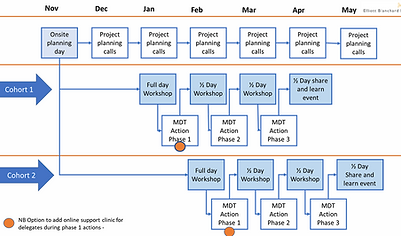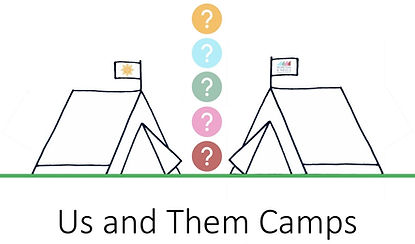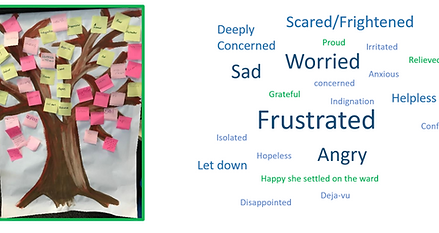

Not a member? Contact us>
Fundamental QI
Methodology
The
3 Frameworks
In this course we take you through the fundamentals of Quality Improvement. This is an essential course which we recommend for all staff, as we go through Triangle4Change©, SO WHAT©, and Model of Improvement.
Introduction to Lean Thinking Principles
Our QI Methodology has been developed based on Lean Thinking principles. Understanding these principles will help you know how to apply the 3 frameworks to any situation, and know which tools and techniques to use.
How to use
data for change
Collecting, presenting and analysing data gives you quantifiable measures of success. This course will help you understand how to use data confidently and measure your QI change work.


Practical Consultancy
We are often asked to complete bespoke pieces of work that blend consultancy and expertise with practical change. When commissioned we design the programme around you and your needs; to help you understand the problem, facilitate collaborative design workshops, help with engagement of stakeholders or provide personal and professional development for individual staff or teams.
So, whether you need help to diagnose the issue, design the solutions or develop staff, get in touch to find out more about how we can help
01

Sepsis Improvement Programme
Before the programme, there had been a lot of work completed across the organisation; with staff putting all the usual changes in place. However the data had not demonstrated any improvement.
Our collaborative programme aimed to understand what was blocking the impact of change. Having worked with multi-disciplinary teams from across hospital and community, we saw a reduction in SHMI value during the programme and in the months after we finished the direct work.
02
PCN development workshops
Creating new ways to facilitate the conversation, this workshop involved us leading a strategic discussion with staff from different GP practices across 2 PCN.
Supporting staff to voice their opinions and thoughts, in a safe environment, resulted in everyone having a clear direction for next steps.

03

Multi-agency Learning from Incidents
This joint learning event was commissioned to facilitate approx. 50 staff working across 5 different agencies, to explore, understand and agree lessons that could be learnt following a significant incident.
By understanding human emotions, scrutinising factual events and learning lessons in a compassionate conversation, attendees were able to agree actions that would prevent a similar situation occurring again.
04
Partnership working with Cancer Alliance to improve the Pancreatic Cancer End of Life Pathway
This project aimed to improve the pancreatic cancer end-of-life pathways, by improving collaborative working between all clinicians involved in a patient's care across primary and secondary care.
The programme focused on developing resources, agreeing new pathways, changing roles and testing the impact for patients and their loved ones.
